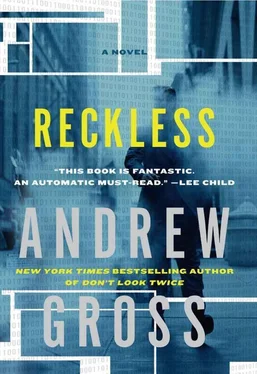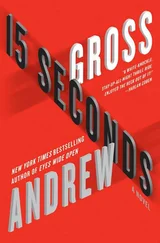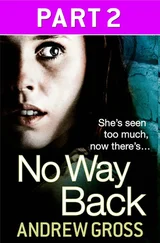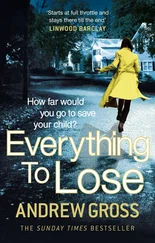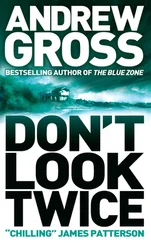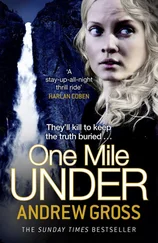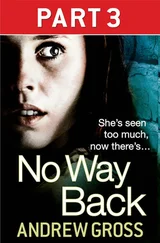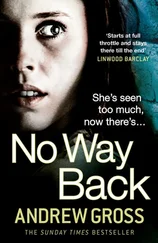O’Toole slipped the photos back inside the envelope. “Sounds reasonable.”
His contact stood up.
“You know, I was thinking,” O’Toole said. “See that guy over there?” A man on the other side of the platform, reading a newspaper, waiting for a train.
“The one in the suit?”
“If a twister hadn’t leveled my town when I was a kid, that might’ve been me, waiting for that train. Coming home from work. Someone waiting for me with a beer. Maybe a kid. Who knows”-O’Toole raised his shades and grinned at him-“I might’ve even been like you.”
“No.” The man in the wire-rims rolled up his magazine and tapped O’Toole’s knee. “You would never have been like me. Just make sure he’s clear of our affairs. Whatever you decide, make it something he’ll clearly understand.”
“You know, we had a saying over there…” O’Toole squinted back at him. “‘The unwanted, doing the unthinkable-for the ungrateful.’”
“Really.” The man in the glasses smiled. He dropped another envelope on his lap. This time a fat one. “I think you’ll find us grateful. As usual. Next train back’s at five thirty-two.”
He walked off, leaving O’Toole on the platform. He tapped the thick envelope against his knee and studied the man on the other side of the track.
Yeah, he thought, laughing to himself; his contact was right. That was never in the cards. He rubbed the back of his neck. Where his panther was. Shiva. The tattoo had kept him safe through five tours to the Sandbox. The tip of her long, bright claw reaching onto his neck.
If he had ever been worth saving, the statute of limitations had long run out. The pieces of his soul had scattered across the globe. Like an F5 blowing into town. Leveling most everything. Scattering the rest.
He reached back and reknotted his thick, red-brown hair.
The man in the Burberry raincoat turned up his collar against the drizzle as he stepped out of the office building onto Madison Avenue. He chatted for a second with a woman-maybe a coworker-who waved good-bye and headed north.
Thibault started walking the other way to the south.
Across the street, Hauck followed, several paces behind.
He had left the office early, telling Brooke he had some errands to attend to. He felt a little out of practice at what he was doing. He hadn’t done this kind of thing in years.
On Fifty-fourth, Thibault stopped in front of a store window, seeming to admire a tie. Then he continued, taking a call on his cell. On Fifty-third Street he made a right, heading west. Hauck crossed after him, hunching into his jacket against the rain, twenty yards behind.
Tall, swarthy, with thick, black hair that came over his collar, Thibault cut a commanding presence. It wasn’t hard to see why women might be drawn to him. Halfway down the block he veered into a recessed courtyard set between two larger buildings. It looked like a restaurant. He opened the glass doors and went inside.
The place was called Alto. Hauck had heard of it. Italian, fancy. The kind of place his boss, Foley, was always trying to drag him to. Annie would have been impressed.
He went up to the door, and through the glass, he saw Thibault remove his coat and hand it to a pretty hostess. It looked as if they were familiar with him there. He seemed to recognize someone at the bar and went straight up to him.
Hauck waited as Thibault greeted the man and took a seat, and then stepped in.
“Dining with us tonight?” The hostess, a twentysomething gal in a sexy black dress, smiled from behind a counter.
Hauck smiled back. “Just meeting a friend at the bar.”
Thibault was seated at the far end of the crowded bar. His friend, who was Mediterranean looking, wore a nicely tailored sport jacket and open white shirt.
Hauck found a nook at the opposite end. The female bartender came up and he ordered a beer. Something Belgian. Palm. For the occasion. Through the maze of shifting bodies and faces, he watched them.
The two appeared to be friends. Even over the loud din, Hauck occasionally heard Thibault’s deep-throated laugh. He’d gotten a drink-it looked like vodka-and he shifted the stool around and sat, his back to Hauck, chatting with his friend. They clinked glasses, Thibault patting him affectionately on the shoulder.
Hauck knew he was crossing the line. He had resolved not to accelerate the situation but to find out whatever he could, and at the same time, he knew this would send Foley off the deep end. But Thibault was clearly concealing something, and whatever it was, Hauck felt certain it led back to Glassman and Donovan. On his cell, he snapped a photo of them through the crowd. When the time came, maybe he’d have something he could give to Naomi or Chrisafoulis.
With a cherry on top.
Thibault signaled for another drink. When he turned, there was a moment when it was almost as if the man’s eyes shifted down the bar and, through the crowd of faces, locked directly on Hauck. Their gazes met momentarily.
Hauck took a sip and glanced away. A shiver traveled down his spine. Don’t be careless. Whatever you do.
A moment later the hostess came up and told them their table was ready. Thibault threw out some bills, signaled for the drinks to be sent directly. He let his companion proceed first, with a pat to his back, then followed as the hostess led them both upstairs.
Hauck watched them disappear, then slipped out of his spot at the bar and went over to where Thibault had been sitting. The female bartender tried to clear off his space. Hauck reached for the empty glass.
“Mind if I take this?” He winked. “Souvenir.”
The bartender hesitated at first, her eyes darting past Hauck, maybe to search out someone in charge, not sure.
Hauck put a fifty on the bar. “This ought to cover, right?”
Her eyes grew wide, and she started clearing off the remaining glasses and napkins, raking in the bill. She nodded. “Ought to cover it just fine.”
Thomas Keaton, secretary of the treasury, to whom the Office of Terrorism and Financial Intelligence reported, was able to spare Naomi and Rob Whyte, her boss, just ten minutes. That was all. He had a meeting at the AG’s office. Naomi and Rob literally rushed over to the main building, making some last-second copies, files in hand. She had shared what she knew with her boss, and he decided it was worth the call.
She was a little nervous. This was by far the most sensitive investigation of her career. She had looked into some of the notable hedge fund frauds and the possible dealings of an Iranian bank to dump dollars through the Middle East, trying to drive the currency down, but never anything like this. The stock market was down 30 percent since the beginning of March. Two of the world’s largest investment banks had failed. Two more, Citi and Bank of America, had plummeted into single digits. Not to mention Freddie Mac and Fannie Mae, which were reeling.
And now she could pretty much prove that the deaths of two rogue traders, traders whose losses had sunk their banks, were, in fact, not unrelated incidents but connected.
The whole thing was one large domino effect, and she felt she knew exactly the point where it all started.
At this point, whatever “evidence” she had, at least from a prosecutorial point of view, was, at best, flimsy. No more than a weak connection between a shadowy individual and the traders who had suddenly died. Looking deeper would have to involve other agencies. The FBI, the SEC, the AG’s office, maybe Interpol. They had to find out who Thibault really was. Who his contacts were. Whether there were any deeper involvements with the two dead traders. Whether money had changed hands. And most likely without taking him into custody. The cryptic message delivered to Marty al-Bashir that had sat on her desk without any apparent meaning now tolled in her brain like a warning bell.
Читать дальше
Конец ознакомительного отрывка
Купить книгу
